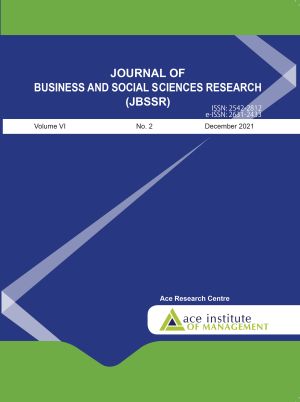Impact of Financial Risk, Current Accounts, and Financial Crisis on Foreign Direct Investment: A Study on Developing Countries in the ASEAN Region
DOI:
https://doi.org/10.3126/jbssr.v6i2.44683Keywords:
ASEAN, current accounts, financial crisis, financial risks, foreign direct investmentAbstract
This study investigates the impact of financial risk, current accounts, and financial crisis on FDI in the developing countries of ASEAN. More specifically, the study examines the effects of the inflation rate, FOREX, lending interest rate, and foreign debt as financial risk components. The panel data have been used from 1995 to 2019 in the region's eight selected countries, divided into two categories according to their income levels: the low-middle income (viz., Cambodia, Laos, Myanmar, the Philippines, and Vietnam) and upper-middle-income (viz., Indonesia, Malaysia, Thailand). The study showed that foreign debt, exchange rate, interest rate, and current accounts for lower-middle-income ASEAN countries are potential determinants of FDI. In contrast, inflation and the financial crisis are both found to be insignificant in determining FDI. For upper-middle-income ASEAN countries, the panel least square method revealed that current accounts, foreign debt, interest rate, inflation rate, and exchange rate are significant factors of FDI. Hence, like lower-middle-income countries, the financial crisis also has no effect on FDI in this region. However, the random effects method exhibited that all variables affect the FDI for upper-middle-income countries.
Downloads
Downloads
Published
How to Cite
Issue
Section
License
© JBSSR/AIM
Authors are required to transfer their Copyright to the Journal of Business and Social Sciences Research.




